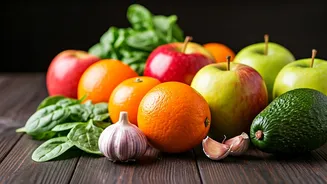Oats: Heart Healthy
Oats are a fantastic option for lowering cholesterol. They contain soluble fiber, specifically beta-glucan, which acts like a sponge, soaking up cholesterol in your
digestive system and preventing its absorption. This, in turn, helps to lower LDL (bad) cholesterol levels. Start your day with a bowl of oatmeal, or incorporate oats into your baking or smoothies. Even a small serving of oats daily can make a noticeable difference in your cholesterol numbers. You can also add some fruits and nuts to make it a more delicious and nutritious meal. Remember to choose whole oats over instant varieties that may contain added sugars and thus negate the benefits.
Beans: Fiber Powerhouse
Beans are rich in soluble fiber, much like oats, and they work by binding to cholesterol in the digestive tract, preventing it from being absorbed. Different types of beans, such as kidney beans, black beans, and chickpeas, are all excellent choices. They are not only effective in lowering cholesterol but are also packed with protein and nutrients, making them a very versatile addition to meals. Include beans in your diet by adding them to soups, salads, or curries. A cup of cooked beans can contribute significantly to your daily fiber intake, assisting with managing cholesterol levels and promoting overall heart health. Remember to rinse canned beans to reduce sodium content.
Nuts: Healthy Fats
Nuts, particularly almonds, walnuts, and cashews, offer a range of health benefits, including cholesterol management. They are filled with monounsaturated and polyunsaturated fats, which can help lower LDL cholesterol. They also contain fiber, which further aids in cholesterol reduction. Aim for a handful of nuts as a snack each day. Be mindful of portion sizes, as nuts are high in calories. Choose raw or dry-roasted nuts instead of those with added salt or sugar. Enjoy nuts as a snack, or add them to salads, yogurt, or oatmeal to make your meals more flavorful and nutritious.
Fatty Fish: Omega-3s
Fatty fish, such as salmon, mackerel, and sardines, are abundant in omega-3 fatty acids. These essential fats not only reduce LDL cholesterol but also increase HDL (good) cholesterol levels. Omega-3s also help lower triglycerides, another type of fat in the blood. Aim to include fatty fish in your diet at least twice a week. Prepare them by grilling, baking, or steaming to retain their nutritional value without added unhealthy fats. Consider incorporating fish into your meals for a boost in your heart health and overall well-being. Make sure the fish is from a sustainable source.
Fruits: Antioxidants Galore
Certain fruits, particularly apples, grapes, strawberries, and citrus fruits, are beneficial for lowering cholesterol. They contain soluble fiber, like pectin, that helps to bind cholesterol in the digestive system. They are also packed with antioxidants, which protect against heart disease. Eat these fruits as snacks, add them to salads, or incorporate them into smoothies. A balanced diet incorporating various fruits can offer a wide range of benefits for your heart health. Ensure you are getting a variety of colours and types of fruits to maximize the benefits and obtain various essential nutrients. Keep in mind that moderation is still key, especially with fruits high in natural sugars.
Vegetables: Fiber Richness
Vegetables, especially those high in soluble fiber, contribute significantly to lowering cholesterol levels. Okra and eggplants are among the vegetables that contain soluble fiber, which helps reduce cholesterol by binding to it in the digestive tract. These vegetables, when consumed regularly, are instrumental in improving overall heart health. They are also low in calories and packed with essential vitamins and minerals, making them an excellent choice for a balanced diet. Incorporate these vegetables into your meals through various cooking methods like stir-frying, grilling, or adding them to stews and curries. Ensure you prepare them in a healthy way to maximize their nutritional value.
Olive Oil: Healthy Choice
Olive oil is rich in monounsaturated fats, which are heart-healthy fats. Regularly consuming olive oil can help reduce LDL cholesterol. It also contains antioxidants that protect against heart disease. Use olive oil for cooking, dressing salads, or drizzling over dishes. Choose extra virgin olive oil for its higher antioxidant content. Replace other cooking oils with olive oil to benefit from its cholesterol-lowering properties. Make sure you use it in moderation since it's calorie-dense. Look for quality, cold-pressed olive oil for the best health benefits.













